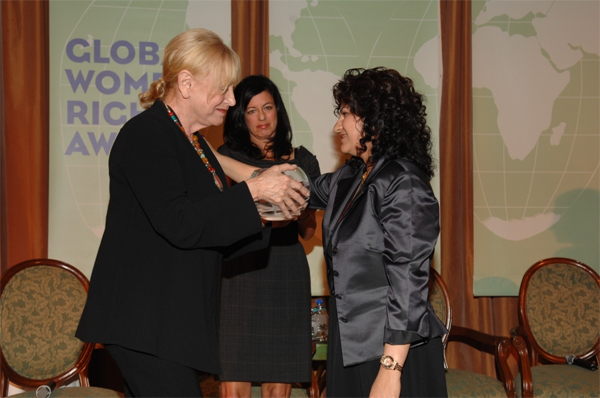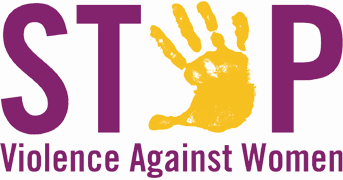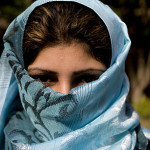 Although the focus of many media reports has been on Egypt’s Tahrir Square, there is another Tahrir Square that demands our attention — the one in Baghdad. On Friday, June 10, members of the Organization of Women’s Freedom in Iraq (OWFI) were attacked and sexually molested as they gathered there to make demands. Since February of this year, OWFI members have been among demonstrators assembling in Tahrir Square every Friday — to demand that Prime Minister Nouri al-Maliki fulfill promises for democratic change and the delivery of fundamental services.
Although the focus of many media reports has been on Egypt’s Tahrir Square, there is another Tahrir Square that demands our attention — the one in Baghdad. On Friday, June 10, members of the Organization of Women’s Freedom in Iraq (OWFI) were attacked and sexually molested as they gathered there to make demands. Since February of this year, OWFI members have been among demonstrators assembling in Tahrir Square every Friday — to demand that Prime Minister Nouri al-Maliki fulfill promises for democratic change and the delivery of fundamental services.
OWFI Director Yanar Mohammed was in New York City the following week for a panel at a conference on social change philanthropy. In an interview facilitated by OWFI partner Madre, I sat down with Mohammed to discuss the recent events.
Mohammed cofounded OWFI during the U.S. invasion of her country in 2003. In two rooms inside a burned out bank, she put a sign on the door proclaiming Women’s Freedom in Iraq. “One thing led to another,” she said, but from day one, the profile of the group reflected the philosophy that “anything military would not lead to a solution for the women of Iraq.”
In addition to setting up safe houses in 2004 to protect women from domestic abuse and honor killings, Mohammed fought sexual trafficking and advocated for women who were incarcerated. She runs a newspaper and a radio station under the banner name of Al Mousawat, which means “equality.”
Beyond providing services, Mohammed demands parity for women with the men of Iraq and promotes secular and human rights, earning her the antagonism of Islamic fundamentalists –who have threatened her life. She sees the power of these religious extremists as a direct result of the military occupation of Iraq. “The Americans did more harm than good,” she said. “Under Saddam, women were educated.” She pointed to how the occupation had left a vacuum for the rise of Islamists — who wrote a new constitution taking away women’s gains. She noted, “In a religious group, there is not moderation. You are not equal to men.” Currently, Mohammed sees the popularity of the Shiite leadership waning. “You can’t force democracy through a gun.”
Mohammed talked about Iraqi mothers who come to Tahrir Square dressed in traditional garb, holding pictures of their missing sons. Beyond being poor, deprived, or wanting social change, they want to know where their children are. It is impossible to penetrate the many layers of security in Iraq, with detainees held in jail without due process as a result of “anti-terrorism” laws.
The weekly demonstrations this year keep pressure on Prime Minister Nouri al-Maliki following February 25, the “Day of Iraqi Anger,” when thousands of Iraqis defied a state curfew in Baghdad as part of what became the Arab Spring uprisings. Protestor grievances included the scarcity of electricity and water, as well as rampant corruption. Maliki set a deadline of one hundred days for following through on his promises and guarantees.
Mohammed described the Friday gatherings as comprised of younger people in their 20s, mixed with working and college educated people — many unemployed. “Women came unveiled,” she maintained, “because in the revolution, women are equal to men.” In response to her presence, she said, “Men wanted to shake my hand. They saw me as a symbol of change.” She emphasized the importance of the female turnout. “Women are at the front of the fight. Our experience with the Islamists for the past eight years have made us ready.” Many of the women sheltered by OWFI received not only refuge, but learned political empowerment as well. However, the second Friday in June turned out to have a different narrative.
Mohammed related the incident from conversations she had with members of OWFI who witnessed the events. Early in the morning, charted air-conditioned buses brought huge numbers of men dressed in tribal clothes to Tahrir Square. They chanted their support for Maliki as the “sole leader of the nation.” The women held signs with slogans that read: “Initiators of Revolution, Defeaters of Tyrants, Come to the Square of Change.” They overheard some of the men saying, “These are the whores we are here to get.” Another contingent of men dressed in athletic tracksuits began grabbing the signs and ripping them, using the wooden handles to hit the women.
One young male activist threw his body over a woman who was being kicked by eight men. While women were being beaten, their bodies — breasts, thighs, buttocks, and genitals — were groped. Mohammed was clear, “It was about humiliation and shame.” One woman was in danger of being physically stripped, but was protected by male compatriots. Mohammed said the thugs also wielded knives and pipes, and a person was threatened with a gun equipped with a silencer. OWFI had prepared to hold a press conference June 12 about the assaults, but the military and army intelligence blocked their street.
One of the most outspoken activists, a 28-year-old woman, went home to find her apartment turned upside down and her possessions destroyed. There was no theft. The point of the action was a warning. Mohammed said succinctly, “The women who were attacked need to be compensated by the government. There should be a formal apology. The woman who had her apartment ransacked needs to be compensated as well.”
What would Mohammed like to tell President Obama? “The Maliki government is pushing women back from the political arena, once again, and the latest incident included sexual harassment and humiliation,” she answered. “If the American government wants to stop the Iraqi government from suppressing women, it will happen right away.”
Meanwhile, the women will be returning to the square.
Source: HuffPost World
http://www.huffingtonpost.com/marcia-g-yerman/baghdad-women-rights_b_888419.html?ref=fb&src=sp




